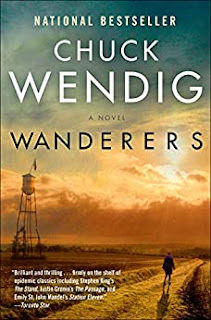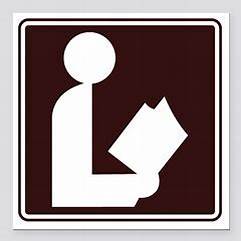I surprised myself a little this month by sticking to my reading plan a lot closer than I normally do. Even though a whole lot of new books caught my attention, as they always do, this month I managed to hold most of them off for February reading. So of the eight books I highlighted coming into January, I read and reviewed six. One of the eight is being moved to February and one is being dropped for the moment. In addition, I did read four others not on the list, bringing me to a total of ten for the month.
This is how February is shaping up:
Who Is Maud Dixon is an ARC that I'm reading right now. The basic story is that a young entry-level publishing house employee, unhappy with her life, manages to get a job as personal assistant to a famous author whose real identity is a well-kept secret. After the writer seems to disappear, the assistant decides to assume her life by becoming her. Intriguing, right? Well so far, I'm mostly bored by this "psychological thriller," and still hoping it gets better soon.Scottish crime writer Denise Mina has been a favorite of mine for several years despite the fact that her prose style always seems to slow me down a little. It takes me longer to get into her rhythm than it does for many authors. This one is about a doctor who finds her birth family only to learn that her mother was murdered years earlier by what appears to be a serial killer. Now she has to decide whether or not she wants to work with her aunt - because the police won't do anything - to identify the killer.Speaking of favorite authors, Elmer Kelton is my favorite western writer of them all. I didn't really plan to read Shadow of a Star right now, but my grandson was looking for a book report book, and I pulled this one off the shelf for him. It's a 1959 book of Kelton's I never got around to reading, but after flipping through it while telling my grandson what to expect, I decided to read it along with him. It's more a YA-level book, but I'm loving it already. Kelton has never disappointed me, so I'm not really surprised.Chuck Wendig's Wanderers is one of those rare books that I learned about by browsing randomly on Amazon one day. That hardly ever happens because I don't usually "browse" Amazon, only going to the site to purchase something specific. Anyway, it's a 2019 pandemic book (I know...just what we need to be reading right now) that is really well-written. But I grabbed a library copy before noticing that the book is 800 pages long. Now the race is on to finish it before the library snags my electronic copy back for the next person on hold.Anyone who has read my reviews for very long knows that I'm a huge fan of the Akashic Books noir series. So when I found out that the publisher was starting a new series of "speculative fiction," I was thrilled. And then I got really lucky by being offered an ARC of the very first volume of the new series, Speculative Los Angeles. As in the noir series, these short story collections will be set in various cities around the world. I'm hoping that by "speculative" the publisher means "alternate history" at least a little bit. This one will be published on February 2. As so much of my reading is, this one is the recommendation of another book blogger (Cathy at Kittling: Books this time) who reviewed another of the books in this eight-book series. It seems that the books are set in 1960s Texas, my own coming-of-age decade here, so I'm curious to see how Wortham handles that time period. This is the first book in the series, and it's a library copy, so the clock is ticking on this one, too. It features a "bald-headed pot-bellied" hero called Ned Parker. It sounds like fun, and I'm hoping it hooks me on the series.This is the one I'm carrying over from my January list. It's an ARC for a book that won't be published until June 8, so there's really know hurry, meaning I probably won't be posting a review for a while. But it sound good, and I'm curious, so I do hope to read it in February.It's about triplet sisters, all very different people, who grew up in a little town whose water supply was declared "unfit" about the time they were born. Their mother wanted answers, but never got them Now the three sisters are determined to get them.The Music of Bees is another ARC, this one set to be published in April. It is said to be "uplifting," and since we all need to be uplifted right now, it sounds pretty good to me. It tells the story of three grieving strangers, one woman and two men, who find their way to a local honeybee farm where they surprise themselves by becoming friends. The blurb says it's about finding a second-chance when you least expect it. It's the kind of book that can easily go off the rails by becoming too sentimental, so we'll see. Hoping for the best.
I'm going to stop with eight titles because I want to leave a little wiggle-room for the surprises that always come along. In addition to these eight, I already have eight books set aside to choose from at the end of February - and that stack will probably double by then. I haven't even mentioned the nine books I acquired in January, only one of which I've read so far. Really, my goal is only to give all of them a chance, and to enjoy eight or ten of them a month. It's not like I don't have enough to choose from, so the odds are with me.



































